1/ SoS for BEIS v Mercer: CA finds EAT went beyond the limits of statutory construction in finding a worker sanctioned for arranging to take part in industrial action protected by s.146 TULR(C)A. EAT reversed & dec of incompatibility declined.
bailii.org/ew/cases/EWCA/…
#ukemplaw
bailii.org/ew/cases/EWCA/…
#ukemplaw
2/ M, a support worker for AFGL, a health & social care charity, was a UNISON workplace rep & was involved in planning a series of strikes. She was suspended after speaking to the press re the plans & issued a written warning (albeit this was overturned on appeal).
3/ M brought a whistleblowing detriment claim & a s.146 TULR(C)A claim that in suspending her she was subject to a detriment for the purpose of preventing/deterring her from taking part in the strike action. A PH was listed to determine whether s.146 extended to this situation. 
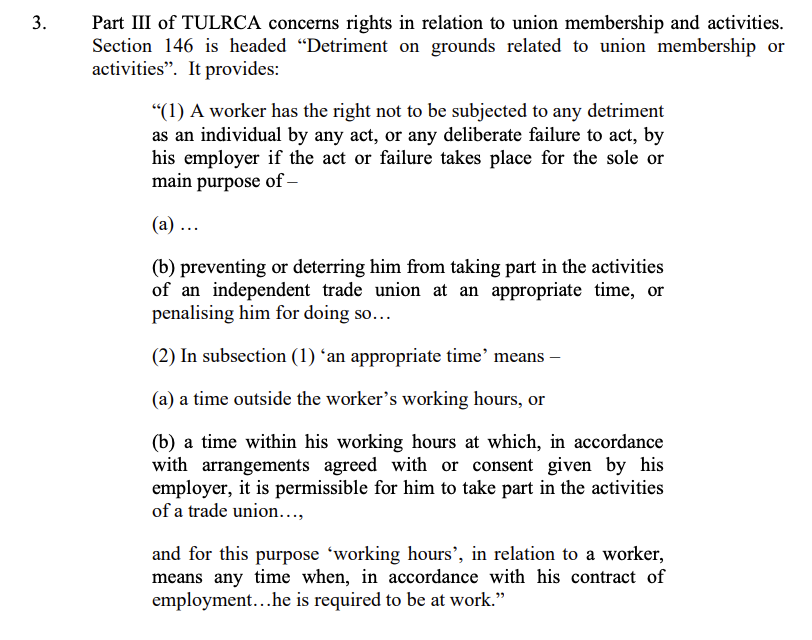
4/ At the PH, the EJ held s.146 didn't extend that dar, it wasn't compliant with the extent of protection Art 11 required, but it couldn't be construed in a compliant manner without going against the grain of the legislation.
5/ The EAT reversed that on appeal, agreeing on the 1st 2 points but finding a sufficiently wide interpretation of s.146 to make it A11-compliant was possible without offending the rules of statutory construction. 

6/ The company didn't appeal, but the SoS BEIS sought to do so as intervener, asserting that the protection wasn't in breach of Art 11 & that in any event the EAT went beyond the limits of statutory construction. 
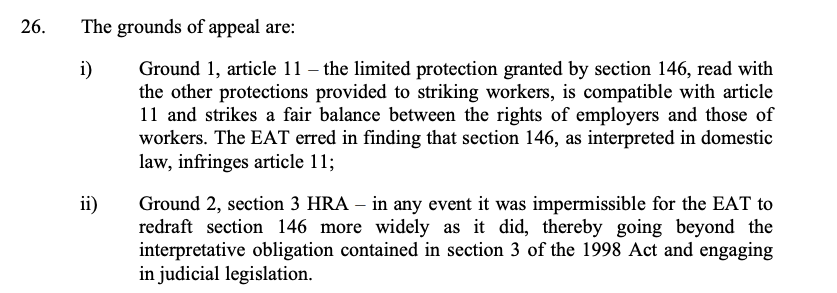
7/ The CA were clear that a domestic construction of s.146 didn't include taking part in industrial action. TULCRA gave no protection against disciplinary action short of dismissal. 
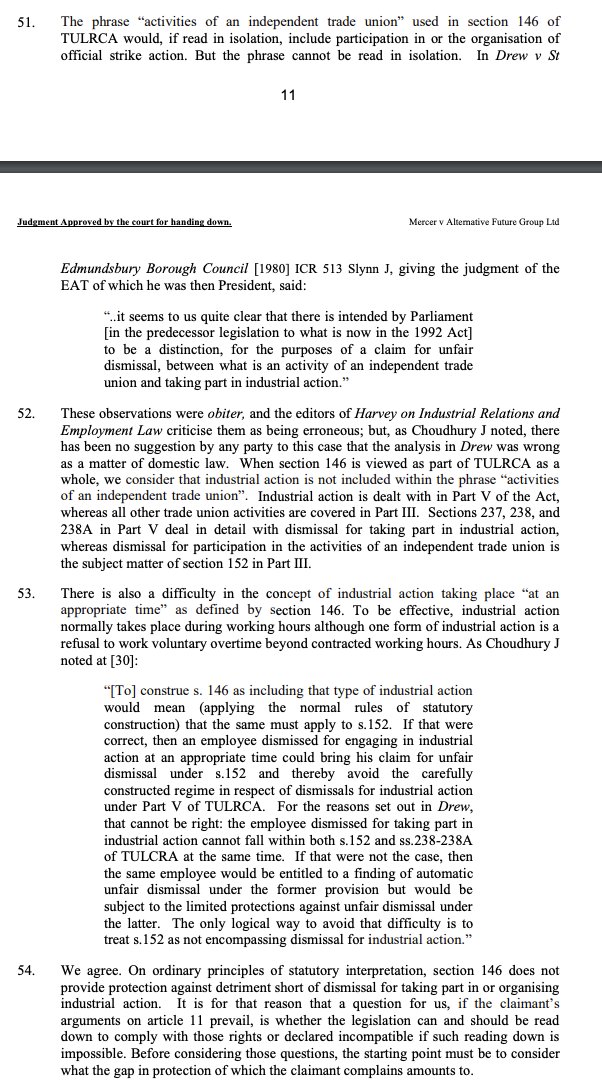
8/ On A11, (after a trawl through Strasbourg case law & submissions re margins of appreciation for public/private empl't) the CA accepted failing to protect a private sector employee from sanction short of dismissal breaches A11 if the sanction strikes at the core of TU activity. 

9/ Turning to the 3rd q, statutory construction under HRA principles, the CA highlighted a number of policy quandaries as to how far to go in any judicial amendment, raising the concern that those should be matters for Parliament. To amend here would be judicial legislation. 

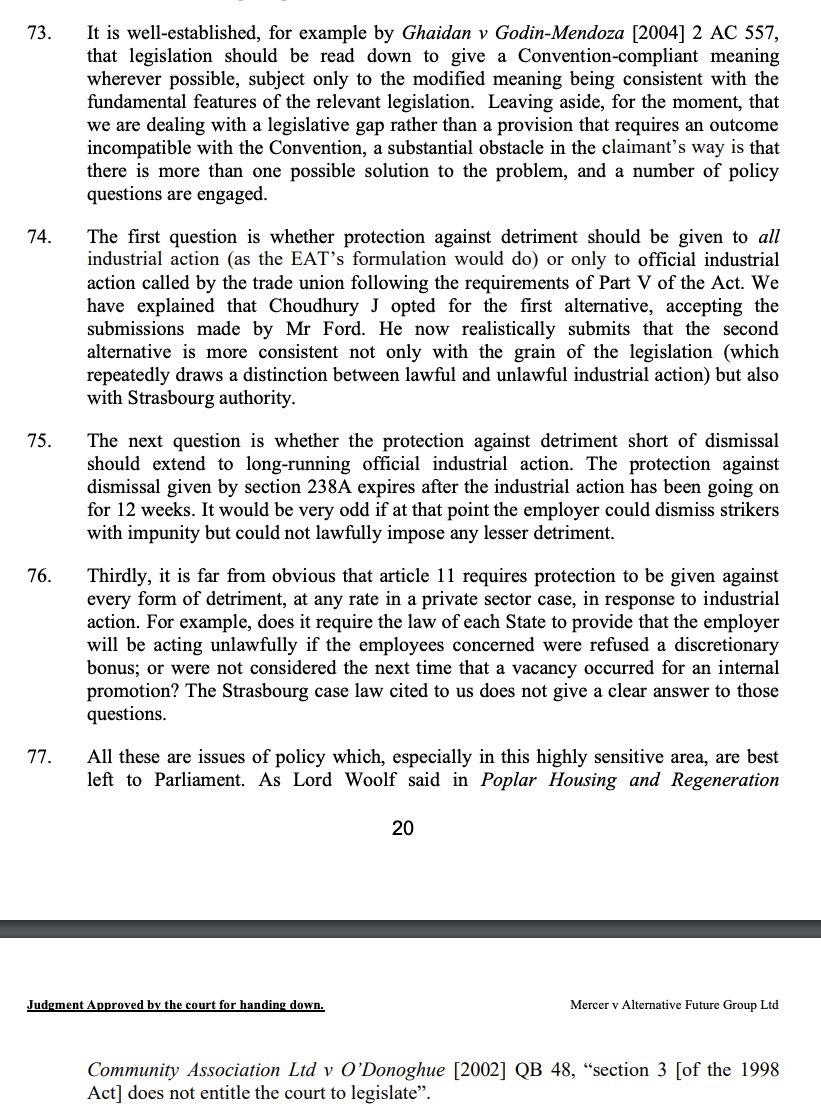

10/ So the CA held it couldn't make the amendment, which then left the q of a declaration of incompatibility. The CA considered such declarations aren't to be used in respect of an omission by Parliament, but in respect of an express incompatibility, thus it declined to make one. 

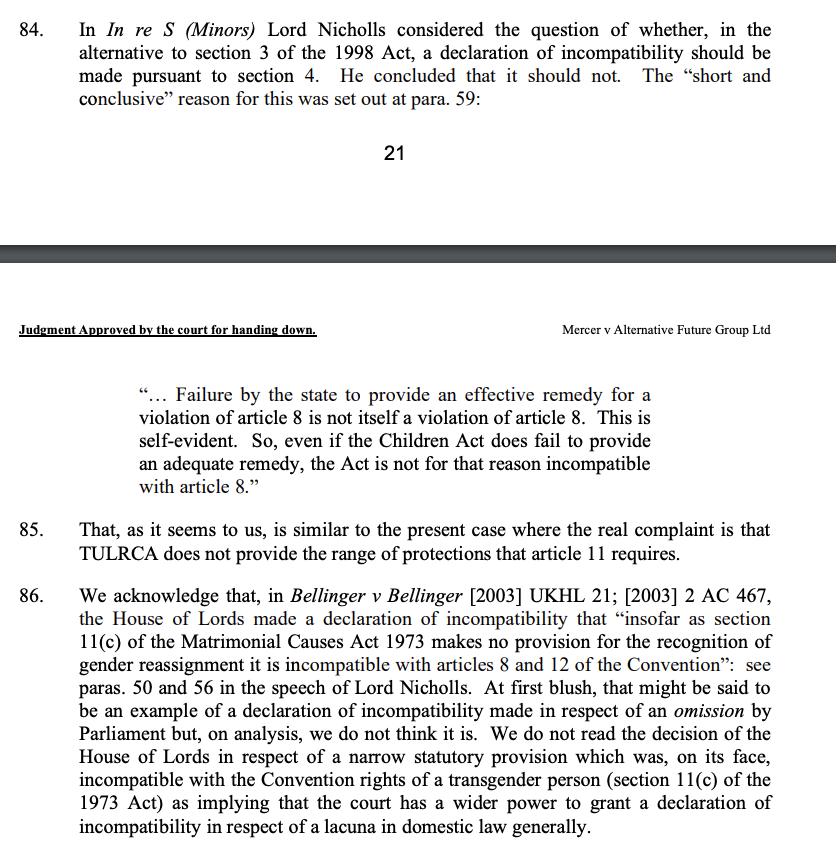
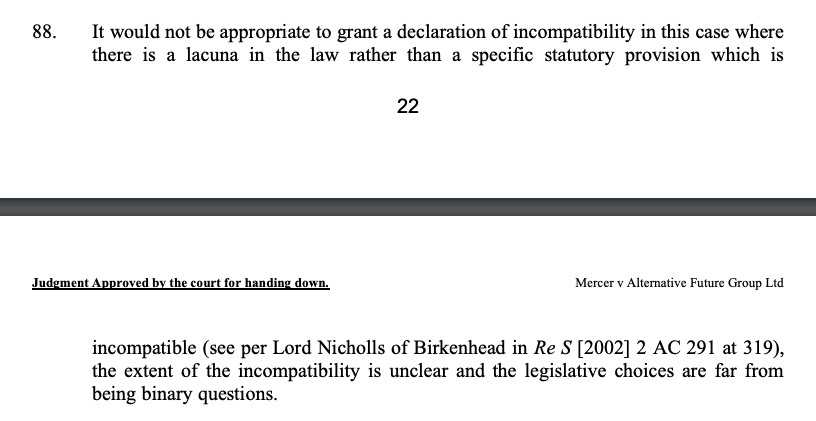
11/ It's always somewhat disappointing when the CA chooses to sidestep ensuring compliance with the ECHR by raising the limits of statutory construction, especially in respect of rights of the importance of these ones.
12/ My guess is @MichaelFordQC & @StuartBrittend1 are already working on the permission application, hoping to find a braver voice in the Supreme Court, and that Michael has already laid out his special tie ready for the battle ahead.
• • •
Missing some Tweet in this thread? You can try to
force a refresh








